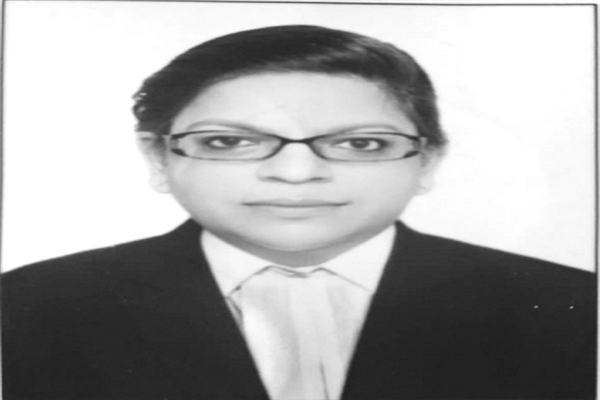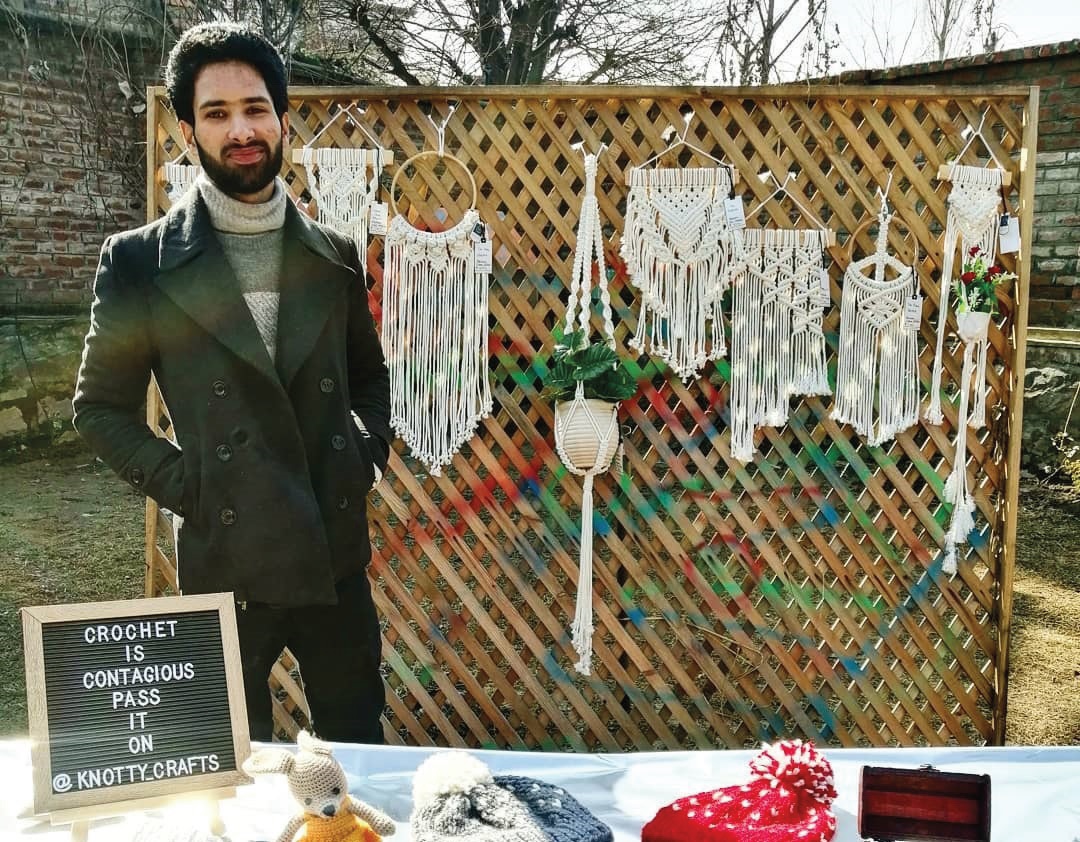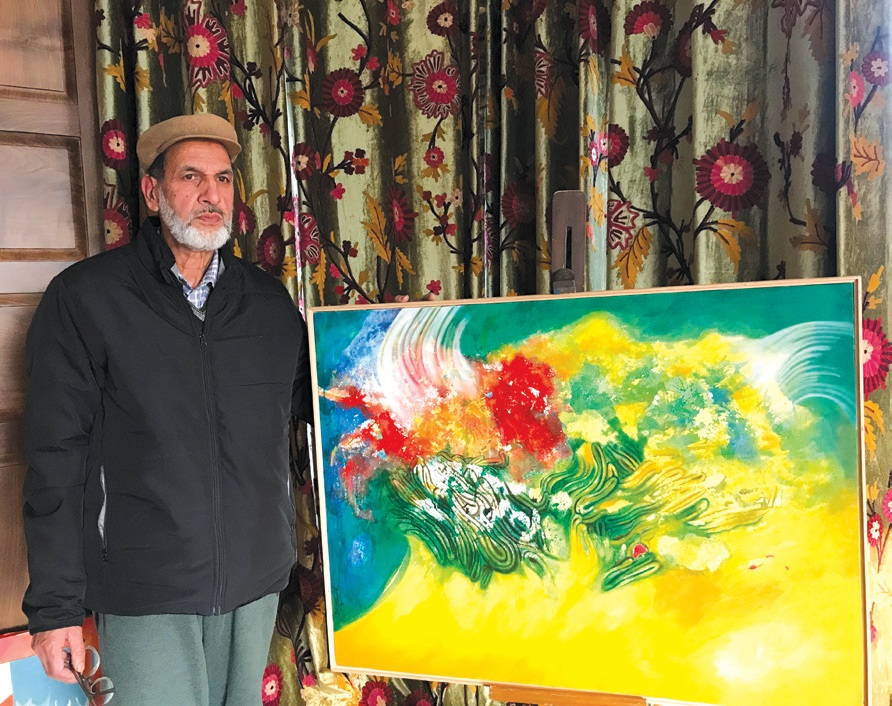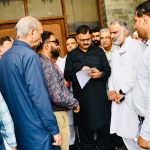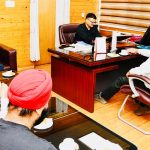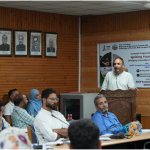They say that a perfect marriage is just two imperfect people who refuse to give up on each other. The recent turn of events however, wherein the Apex court of the country has agreed to hear petitions seeking legal recognition of same-sex marriages, raises hopes of securing another significant right for the country’s LGBTQ community. A bench led by chief justice D.Y. Chandrachud recently asked the government to file its response within a month.
This decision coming four years after the Supreme Court scrapped the law criminalizing gay sex, in a way also shows that the court is ready to accept the fact that the Indian society is changing and the laws will also have to keep abreast. The Supreme Court today is being headed by CJI DY Chandrachud who is known for his progressive judgements specially those pertaining to LGBTQ and women’s rights was also hear commenting at an event in New Delhi that – “Equality is not achieved with the decriminalization of homosexuality alone but must extend to all spheres of life including the home, the workplace and public places,”
In the current petition before The Supreme Court, One of the two petitioners is a gay couple based in Hyderabad who held a commitment ceremony last December to cement their nearly decade long relationship.
“We still can’t say we are legally married. On any public platform I cannot introduce Abhay as my husband. Marriage is important to an Indian family and I want my mother to be able to say that her son is married to Abhay,” said 32-year-old Chakraborty. “I have to still fill my status on all official forms as single, but I want the same rights and security that flow from legal marriages for straight couples. We don’t have any of that.”
It is needless to point out that a lack of legal recognition leads to a host of other legal hurdles for same-sex partners such as the right to make health care decisions for spouses or rights to inheritance etc all of which were pointed out by Sr Advocate Mukul Rohatgi who appeared for the petitioners before the court.
Even though the government feels that marriage necessarily depends upon “age-old customs, rituals, practices, cultural ethos and societal values,” and that same-sex marriages would “cause complete havoc with the delicate balance of personal laws in the country” yet it cannot overlook the fact that the thought process of the society is becoming more liberal and that many gay celebrities have also come out in the open about their orientation, this coupled with the fact that gay relationships have more or less started becoming normalised in the society today, the day is not far when any legal embargo on the same shall be frowned upon by all.
This is however not the first time that the Supreme Court is dealing with the question of same sex marriages. on 6th September 2016, a five-judge constitutional Bench of the Supreme Court in the landmark judgment of Navtej Singh Johar vs. Union of India had struck down those provisions of a 162-year-old colonial statute (Section 377 of the Indian Penal Code, 1860) that criminalized private and consensual same-sex activity between adults, one of the judges had even remarked: “Sexual orientation of a person is an essential attribute of privacy…The right to privacy is broad-based and pervasive under our Constitutional scheme, and encompasses decisional autonomy, to cover intimate/personal decisions and preserves the sanctity of the private sphere of an individual.” Today, multiple petitions are pending before the Delhi High Court as well as the High courts of other states seeking to recognize same-sex marriages in India under the Special Marriage Act, Hindu Marriage Act, and Foreign Marriage Act, among others.
In a response to these petitions, the Solicitor General of India, Tushar Mehta, appearing on behalf of the Union Government, made a few observations saying that the term ‘spouse’ and ‘marriage’ in the Citizenship Act referred to heterosexual couples only, and hence, de facto excluded same-sex couples. He also went on to state that the Navtej Singh Johar judgement decriminalized private, consensual same-sex activity between adult but it did not discuss public, consensual same-sex activity, and hence, could not be attributed to granting homosexual people marriage rights. Showing the stance of the government in the said matter, the Union Ministry of Law and Justice had also remarked that ‘legitimate State interest’ lay in limiting the institution of marriage to those of the opposite sex only to preserve ‘social morality’.
The Apostolic Alliance of Churches and the Utkal Christian Council – two groups that opposed the reading down of Section 377 had also put on record that “the decriminalization of Section 377 IPC will open a floodgate of social issues which the legislative domain is not capable of accommodating as same sex marriages would become social experiments with unpredictable outcome.” This argument might not have swayed the Supreme Court when it decriminalised Sec 377, yet the argument apparently persists even today given the reluctance of the Delhi High Court in recognising marriages for same sex couples.
The Supreme court at the time of passing the NavtejJudgement might have made it clear that consensual and private same-sex activities between adults did constitute an essential part of one’s privacy, it did not however at that time make explicit the distinction between the private and the public sphere. At that time, a lot of stress was placed by the court on the social ostracization and humiliation faced by the Indian LGBTQIA+ community, but by limiting itself to the domain of the private sphere, it left open certain questions like whether the determination of marriage was public or private; after all, marriage can be both a private and public affair – just like sexuality. Marriage can be private when it is seen as an intimate coupling of two people, and it can be public when it is celebrated as a collective union of two people – and two families. Moreover, if hostility to LGBTQIA+ people comes from both the public and private sphere, why should positively affirming rights be restricted only to the private sphere leaving the public sphere undetermined?
It is quite Interesting to note that opposition to decriminalizing homosexuality in India has come from representatives of multiple religious groups like Hindu, Muslim, and Christians over the years hence it has also been suggested that same-sex marriage advocates should not emphasise on amending personal laws, but instead, focus on either amending secular legislation like the Special Marriage Act (which facilitates marriages between people of different religions, or those who don’t want to be bound by their religion’s personal laws) or reading down the Special Marriage Act as unconstitutional on the grounds that it discriminates against sexual and gender minorities a stand that is also being taken by the petitioners before the Supreme Court today. While this approach may sound feasible, it doesn’t address the larger question namely, the failure of our legal system (and our society) to properly remedy the glaringly obvious contradictions between fundamental rights on the one hand and gender/sex discrimination under personal laws on the other.
The other question that will immediately follow the amendment -if ever, of the Special Marriage Act that may offer some relief to the same sex marriages is that why should homosexual people be constrained to seek legal recognition outside the purview of religion? These are only some complicated questions among many others that courts across the world are still trying to answer, and social morality plays an important role in determining how the courts behave.
While Netherlands was the first country in the world to legalize same-sex marriage more than 20 years ago, today the position is that 31 countries have followed suit. The fact however remains that identifying as LGBTQIA+ is still illegal in 70 countries, with some countries even prescribing death penalty for homosexuality. The Indian stance is still somewhere in the middle as with a watered down Section 377, it is no longer a crime to enter into adult, consensual, and private same-sex relationships but same sex marriages are not accepted by law.
It would be extremely important to mention here should that in Arunkumar and Anr. vs. The Inspector General of Registration and Ors. (2019), the Madras High Court had upheld a Hindu marriage between Arunkumar (a cisgendered man) and Sreeja (a transgender woman). Even at that time, the stance taken by Justice G.R. Swaminathan was that the term ‘bride’ in Section 5 (conditions for a Hindu marriage) of the Hindu Marriage Act must not have a static meaning rather, it had to be reinterpreted in light of changing socio-cultural norms to also include transwomen, intersex people, and other transgender people who identified as women. The court had further recognized the existence of multiple gender identities. While the court did not discuss same-sex marriage in its judgment, it did uphold the validity of marriages across genders .
Considering that the Supreme Court has already determined the right to marry a person of one’s choice in the famous Hadiya Case, it is the right time to take this discussion one step ahead and finally deal with the question of whether recognition to non- traditional homosexual marriages should be granted or not. In the light of the fact that courts have already approved marriage between non-traditional heterosexual individuals, they have a tough decision before them because if they decided against the validity, they will find themselves on the wrong side of history.


